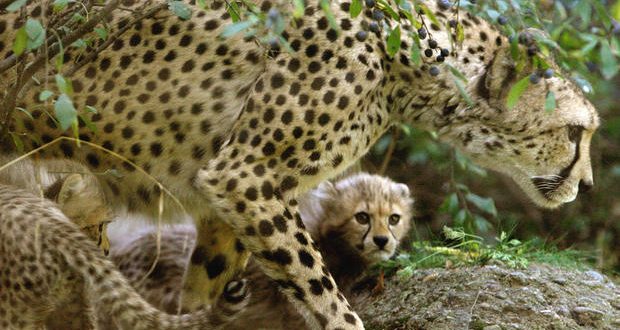Cheetahs, the fastest animal in the world, are on the brink of extinction according a study published Monday in the Proceedings of the National Academy of Sciences.
Just 7,100 cheetahs remain across the globe as the species continues to face a range of threats largely caused by humans
The research noted that Asiatic cheetahs have been especially screwed, with one isolated area of Iran left with fewer than 50 cheetahs still around. In Zimbabwe, the cheetah population dropped to 1,200 to 170 cheetahs—at most—in only 16 years. That’s an 85 percent loss.
While some wild animals are safer within protected natural areas—where law enforcement is better able to protect animals from human pressures—most cheetahs aren’t so lucky. Seventy-seven percent of the cheetah’s habitat isn’t within a protected area, which isn’t good news for one of our planet’s most wide-ranging carnivores.
The study’s lead author, Dr. Sarah Durant, explained in a statement, “Our findings show that the large space requirements for cheetah, coupled with the complex range of threats faced by the species in the wild, mean that it is likely to be much more vulnerable to extinction than was previously thought.”
The study’s authors are asking for the cheetah to be changed from “vulnerable” to “endangered” on the International Union for the Conservation of Nature (IUCN) Red List of Threatened Species, which would mean “greater international conservation support, prioritization and attention” for the cheetah, and hopefully prevent the cheetah’s extinction.
Cheetahs aren’t the only animals accelerating towards extinction.
Earlier this month, IUCN noted that the giraffe population has declined 38 percent in the last three decades, according to the Guardian. There were around 157,000 of the world’s tallest animal in 1985, but now there are only 97,500.
According to CNN, the Great Elephant Census found that 30 percent of African elephants—around 144,000—disappeared between 2007 and 2014. Scientists estimate that, before European colonization, Africa might have had up to 20 million elephants. By 1979, though, only 1.3 million elephants were left.
Agencies/Canadajournal
 Canada Journal – News of the World Articles and videos to bring you the biggest Canadian news stories from across the country every day
Canada Journal – News of the World Articles and videos to bring you the biggest Canadian news stories from across the country every day



